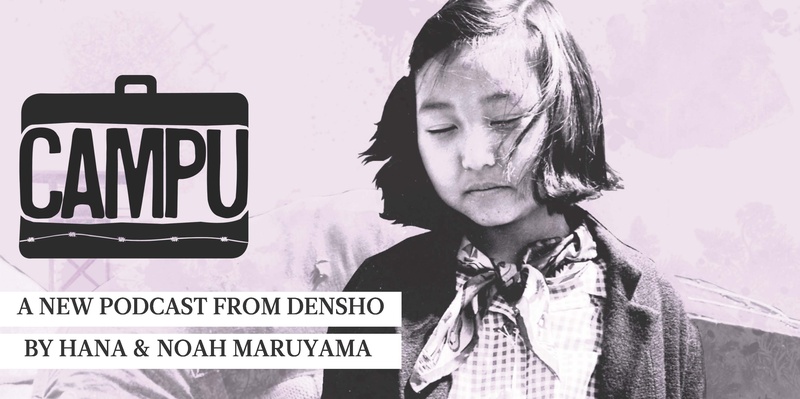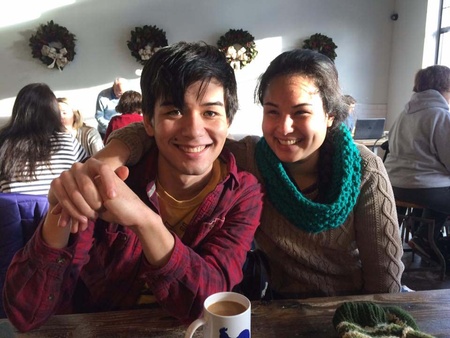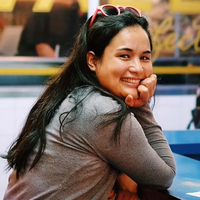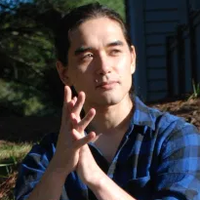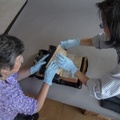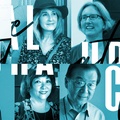Introducing Campu: a podcast that offers a fresh, raw, and insightful scope into the diverse experiences of Japanese incarceree daily life during World War II. Campu analyzes the political, racial, social, psychological, physical, and systemic barriers that Japanese immigrants and Japanese Americans endured during this event in history.
The podcast also goes above and beyond by identifying and discussing how a collection of these events have created a long-lasting impact on our history today. By bringing together various unheard anecdotes, life events, and history, this podcast creates a unique take on the storytelling of Japanese incarceration.
I had the privilege of interviewing Hana and Noah Maruyama, the producers of Campu, a sister and brother duo and descendants of incarcerated Japanese ancestors. Their mission for Campu was to provide a platform for the oral histories and overlooked voices of incarcerees by sharing their stories on the often-overgeneralized aspect of incarceration: daily life.
They aim to contextualize the content within current events and the broader history of Asian-American immigration. Through the form of a podcast, it encourages listeners to hone in on the tone, rhythm, and speech of every voice, creating a more powerful listening experience. Their podcast is currently available anywhere you listen to podcasts, contributing to a collective effort to remember history through storytelling.
The theme for each podcast is curated so each episode focuses on one object’s relevance to the incarceration camp. For example, “Episode 1: Rocks” focuses on the significance, relevance, qualities, and effects that these objects brought to the daily lives of Japanese American incarcerees. It is not the rocks just on the ground, but rather the embedded layers of rocks from generations and generations ago. This episode gives “rocks” a new meaning by diving deep into the origins of acres of land that was stolen and exploited in order to make room for incarceration camps. It also discusses the long-lasting effects this has caused for those who were uprooted from those areas, their future generations, and American politics.
Each episode ranges from 20 to 70 voices compiled in an organized manner in order to highlight the similarities and differences of each individuals’ experiences. In doing so, Campu offers valuable information, insight, and lessons that are not often taught in school, society, and everyday life. It also provides a space of familiarity and connectedness for individuals who come from families that were impacted by the camps.
The producers share how working on the podcast gave them a deeper understanding of the Japanese American internees’ true characters and their experiences.
Hana: The episode that I’m writing right now is about the “chamba” or chamber pot that many families had in the camps. I had really looked forward to writing this episode because I think on the one hand you see a lot of humor in the stories that incarcerees tell about the chamba and the latrines and on the other hand it really shows how humiliating this experience was for them. It also shows their resilience—they found so many creative solutions to this indignity and found ways to laugh about it. I think that the combination of humor and trauma and humiliation and resilience in that one episode really encapsulates so many different parts of the experience.
Noah: “The voices are what I feel is really special. We try to be true to how Japanese Americans express themselves, the rhythms and cadences of their speech—Issei and Nisei especially are quite reserved. To me, a lot of the content is pretty heartbreaking, but it can be especially so when incarcerees talk about events that traumatized or hurt them, only to start laughing in the middle of it… And I think to many Japanese Americans, that speaks to how hard a time we have expressing anger and grief and shame.”
This part of history contains so much for everyone to learn and all of that information is out there for people to explore. Whether it be through a podcast like Campu, the local museum, or grandparents, every detail plays a powerful and valuable role in storytelling. The producers share a message on their takeaway from the podcast and offer advice for those who are interested in learning and wanting to get involved with keeping this piece of history alive.
Hana: The incarceration is still relevant today and it was not one cohesive experience—there are 120,000 different experiences of the incarceration and there are definitely themes in those experiences, but they all have their own vibrancy. Go out there and learn about it. Most of what I’ve learned hasn’t been in classrooms. You can’t count on someone to teach it to you—let alone teach it to you well—so you’re going to have to seek out that knowledge for yourself. And listen to your family. My grandmother hates talking about her experience in the camps—the only times I’ve ever really learned anything about her experience was when we were cooking together or just hanging out. Every once in a while, she’ll say something about her life in camp and I know I have to hold onto that because that story is precious—even if it’s just about her refusal to ever eat apple butter again.
Noah: It’s a cliche and an oversimplification to say history repeats itself, but I think the discrimination against Asian-Americans, the xenophobia, and the use of incarceration as punishment of the vulnerable all still echo. But I think for younger people like us, one of the more valuable lessons I get reminded of as I work on Campu is that while older people may believe and understand differently than we do, while being old doesn’t make them wise, while our lives won’t be the same as theirs, they’ve seen more than we have. And we’ll wind up more similar to them than we’d like to think. And as far as keeping history alive, find new ways to tell the stories you want people to hear, in ways you’d want to hear them. We didn’t have a huge amount of references for how or why this project would work, we just knew that we valued in the telling.
Campu has three episodes now streaming on your listening platforms for free. The next three episodes will air starting January 6, 2021. Click the link here to start listening now.
© 2020 Kate Iio


